Indigenous women weaving the climate change agenda toward a sustainable future
At COP27, Indigenous women from Africa, Mesoamerica, and South America discuss how they are leading climate agendas with their traditional knowledge
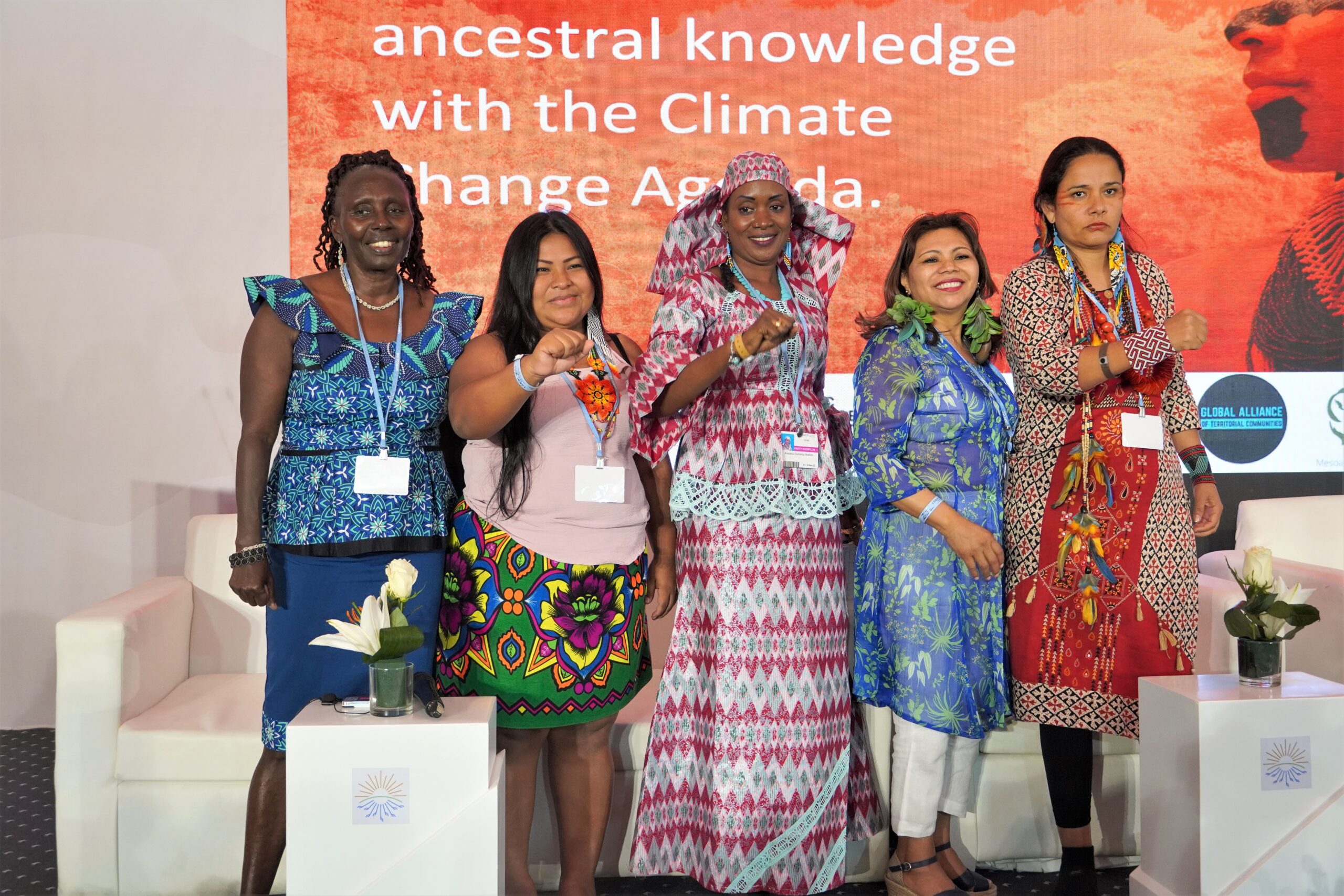
Indigenous women from Africa, Mesoamerica, and South America presented local examples of why Indigenous women are key agents leading climate change agendas with their ancestral knowledge and traditional practices in an event in the Green Zone at COP 27 organized by the FSC Indigenous Foundation (FSC-IF), the Coordinator of Territorial Women Leaders of the Mesoamerican Alliance of Peoples and Forests (AMPB), the Global Alliance of Territorial Communities (GATC), and TINTA.
Indigenous women are guardians of ancestral knowledge at the cultural, political, social, and productive levels, protecting forests, water, and biodiversity, and are responsible for transmitting this knowledge from generation to generation. Indigenous women, youth, and girls have been disproportionately impacted by climate change. However, the strategies promoted and the approaches adopted by different actors at the local, national, and international levels have not been able to provide the required response in terms of losses and damages caused, nor have they been implementing, in an inclusive and differentiated manner, prior consultations with a gender perspective. Indigenous women’s organizations received only 0.7% of all recorded human rights funding between 2010 and 2013, despite the fact that they use, manage and conserve community territories consisting of more than 50% of the world’s land.
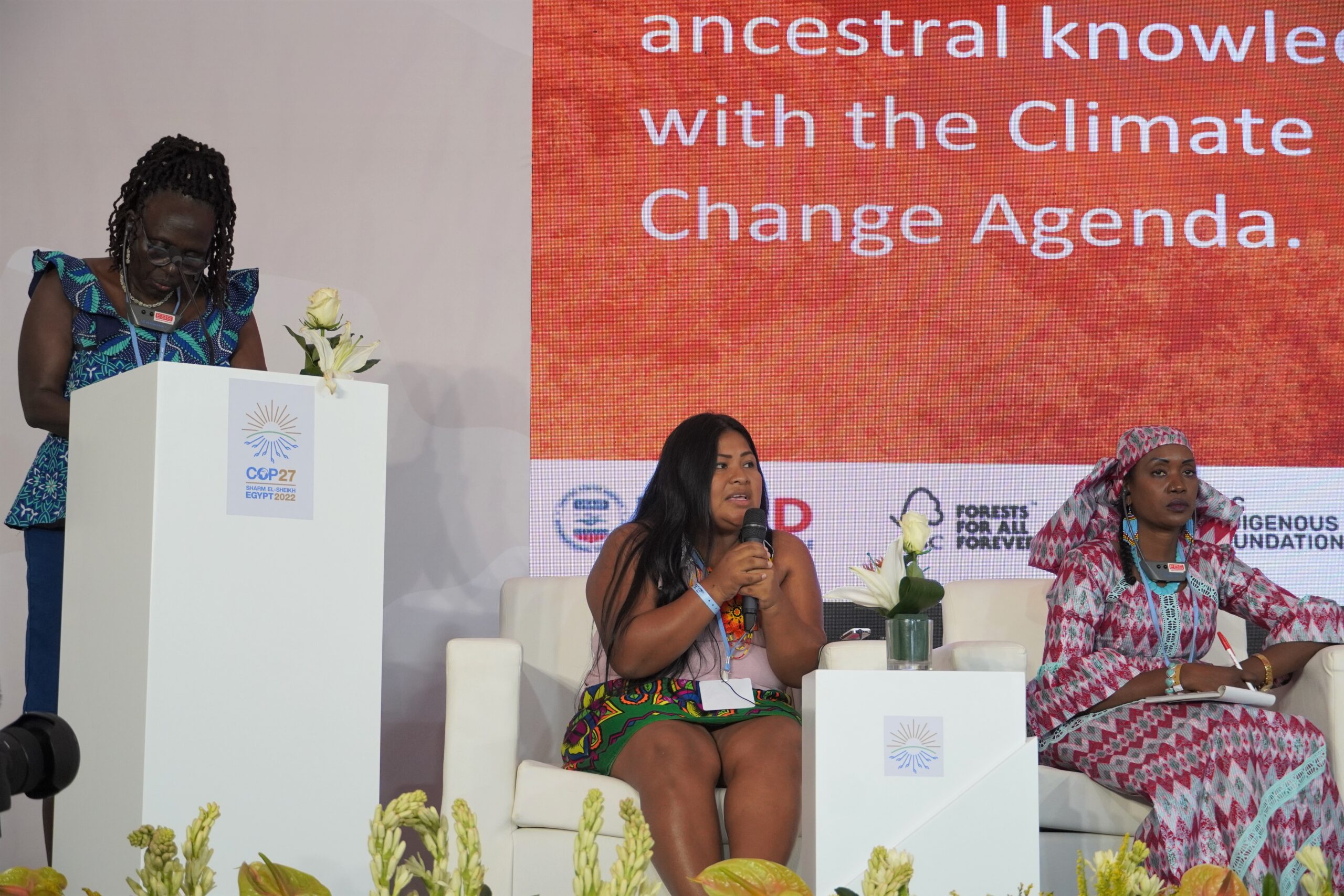
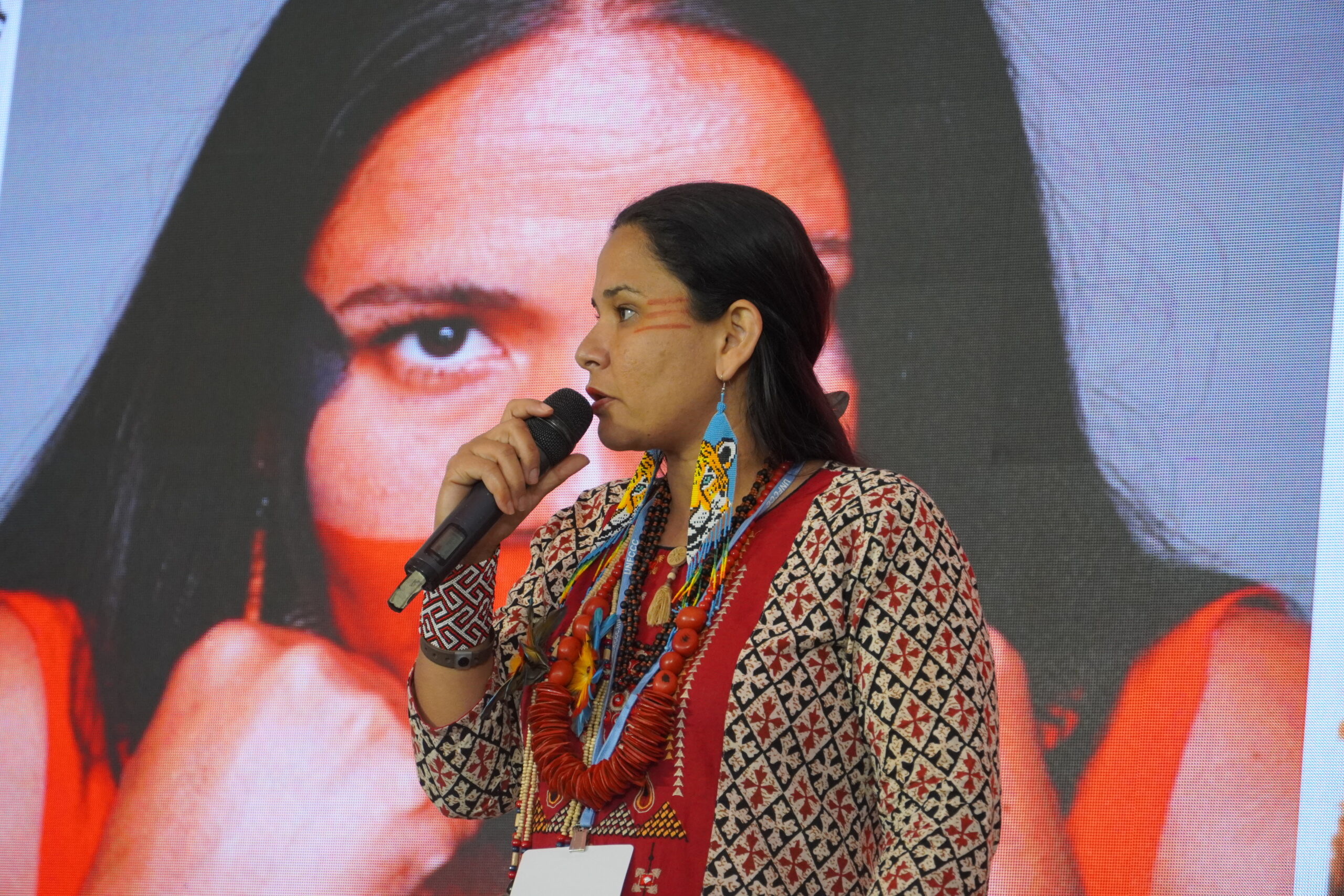
Sara Omi, Emberá lawyer and President of the Coordinator of Territorial Women Leaders of Mesoamerica of the AMPB; Aissatou Oumarou, Deputy Coordinator of the Network of Indigenous and Local Populations for the Sustainable Management of Forest Ecosystems in Central Africa (REPALEAC); Fany Kuiru, Women’s, Children and Family Coordinator of Coordinator of the Organization of Indigenous Peoples of the Colombian Amazon (OPIAC); and Shirley Krenak of the Articulation of Indigenous Peoples of Brazil (APIB), shared their perspectives on climate change and how it affects women and families in their territories with key stakeholders from the private sector, financial sector, government, and international cooperation.
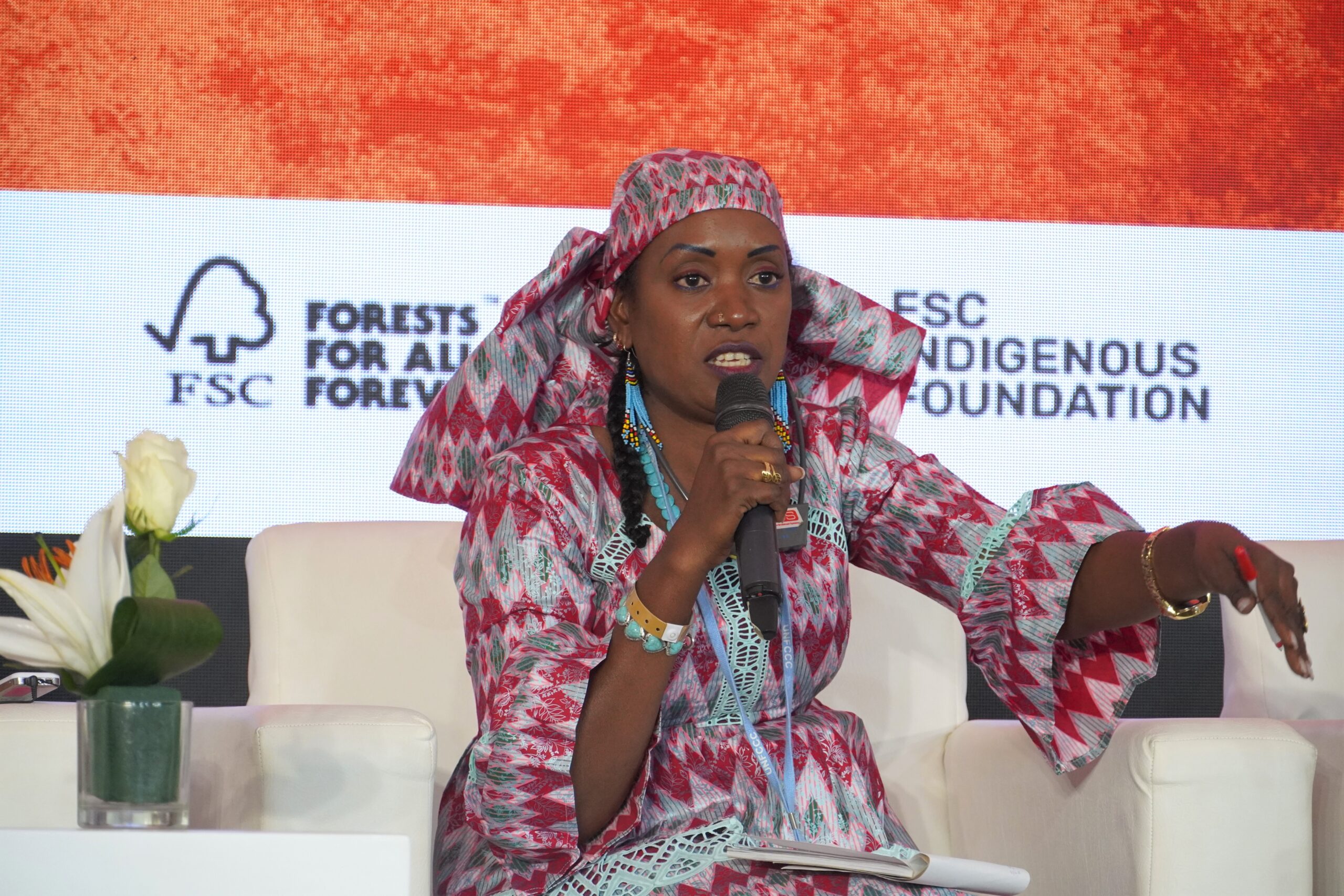
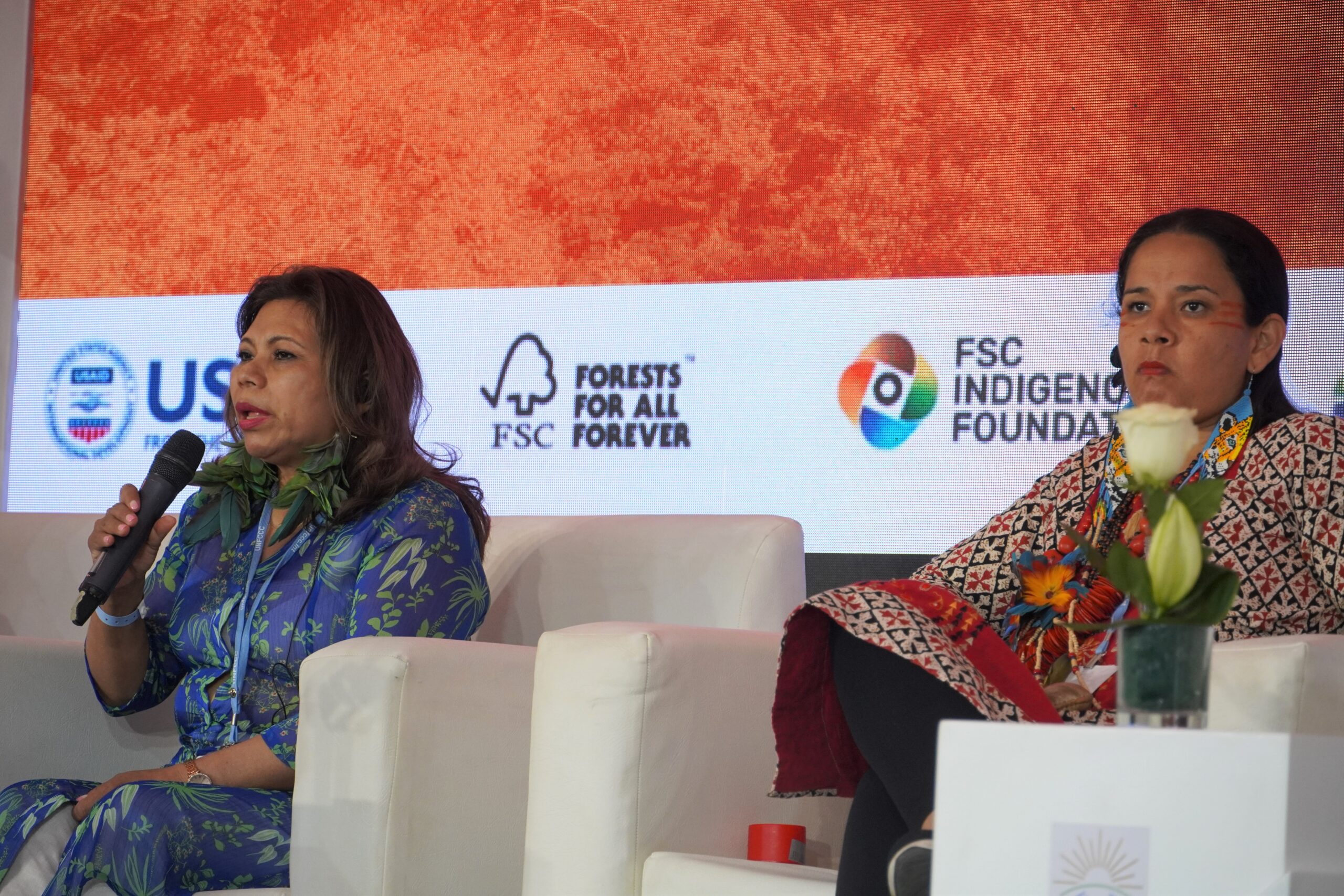
Sara Omi, of the Territorial Women Leaders of Mesoamerica and AMPB, said, “We are the protectors of traditional knowledge but our contributions are invisible. That is why we are here to highlight our contributions to the planet.”
Aissatou Oumarou of REPALEAC stated, “We are losing our biodiversity, we are losing our trees, and this prevents us from passing our culture and traditions to the next generation, all because of climate change. ”
Shirley Krenak of APIB said that in the Amazon, “We have seven biomes where Indigenous women live. We have long been attacked by environmental atrocities.”
Fany Kuiru of OPIAC explained, “Indigenous women’s traditional knowledge is part of the solution. Women are taught to respect and value nature to keep the balance.” She also added that “the masculinization of climate finance has to be changed.”
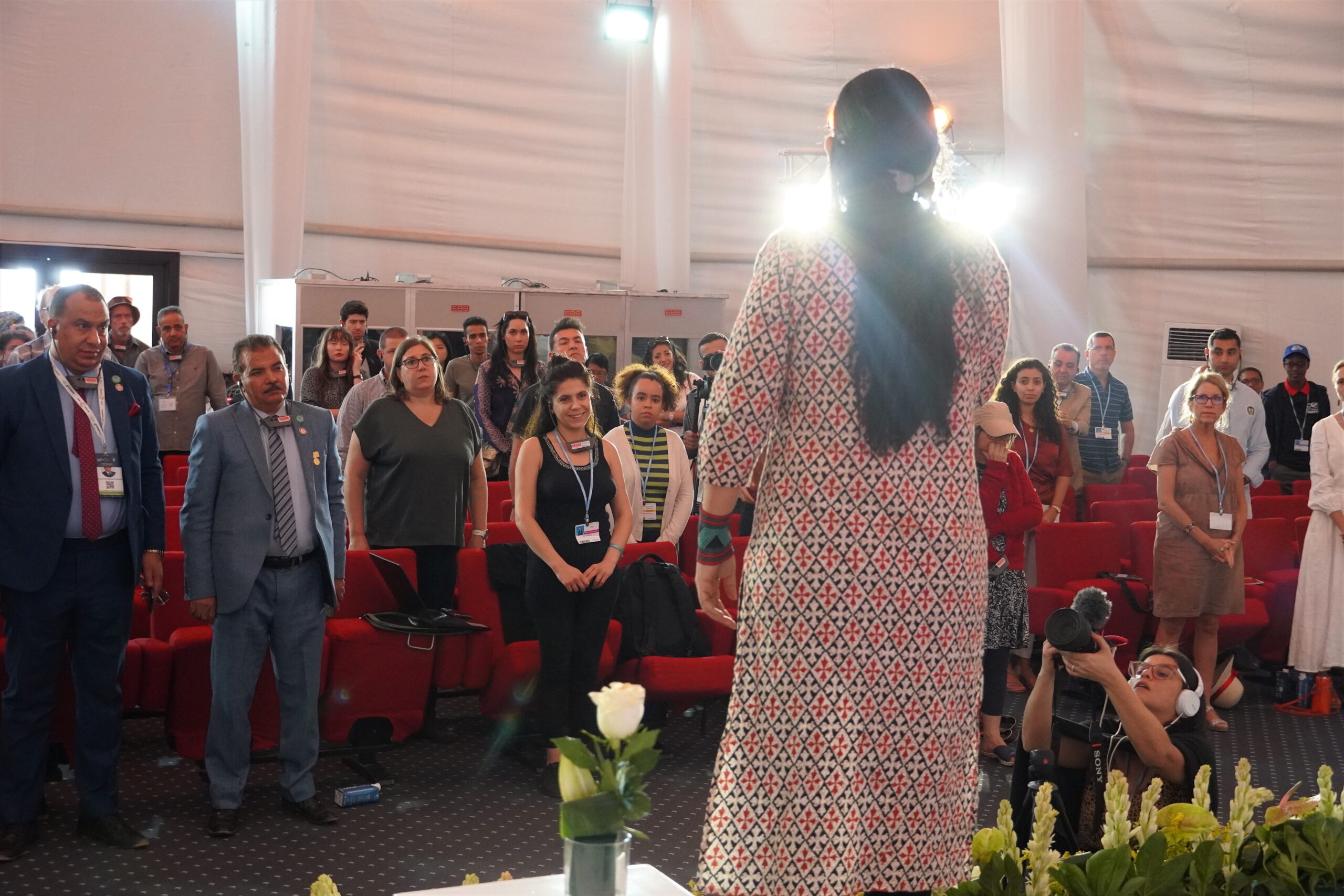
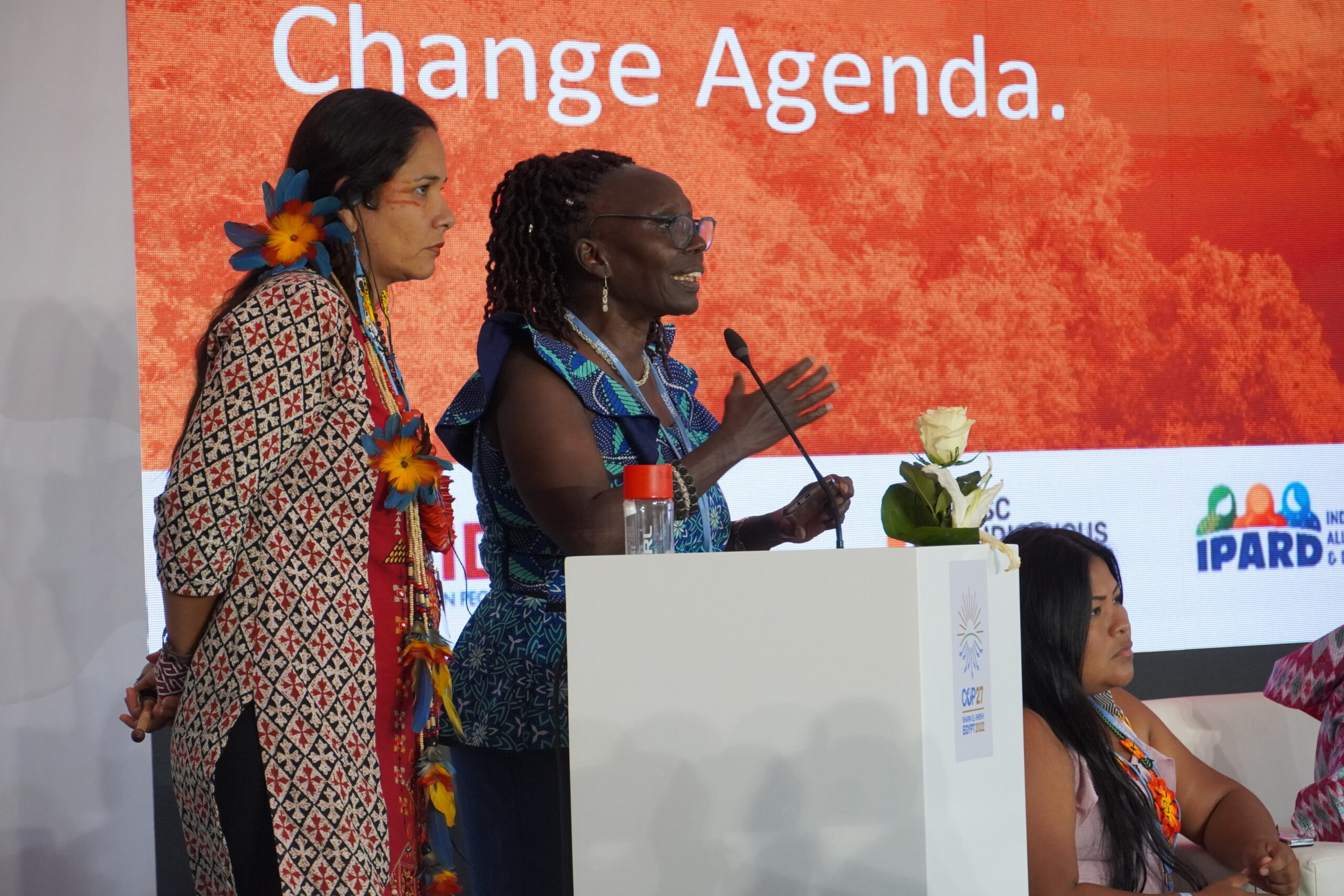
Sara Omi said, “I want to recognize the importance and the role played by the FSC Indigenous Foundation in the case of Panama and Mesoamerica to continue contributing to the creation of mechanisms or public policies that can break these gaps of inequalities of vulnerability to the effects of climate change.”
Global political and social actors must direct their attention and resources to strengthen and empower Indigenous women and incorporate their knowledge into strategies to address climate change.
Watch a recording of the event here.
Contact information:
Mary Donovan, FSC-IF, m.donovan@fsc.org
Tamara Espinoza, CMLT/AMPB, comunicacion@mujeresmesoamericanas.org
Andrea Rodriguez, GATC, andrearodriguezgarson@gmail.com
Poem by Amalia Hernandez, Lenca Indigenous Women, to world leaders (in Spanish)
